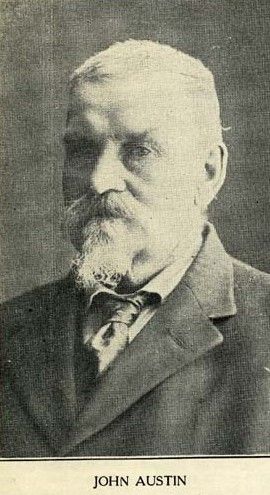<Back to Index>
- Jurist and Philosopher of Jurisprudence John Austin, 1790
PAGE SPONSOR

John Austin (3 March 1790, Creeting Mill, Suffolk - 1 December 1859, Weybridge, Surrey) was a noted British jurist and published extensively concerning the philosophy of law and jurisprudence.
Austin served with the British Army in Sicily and Malta, but sold his officer's commission to study law. He became a member of the Bar during 1818. He discontinued his law practice soon after, devoted himself to the study of law as a science, and became Professor of Jurisprudence in the University of London (now University College London) 1826 - 32. Thereafter he served on various Royal Commissions.
His publications had a profound influence on English jurisprudence. They include The Province of Jurisprudence Determined (1832), and Lectures on Jurisprudence.
On 24 August 1819, Austin married Sarah Taylor, who also became an author, at St George Colegate, Norwich.
The three basic points of Austin's theory of law are that:
- the law is command issued by the uncommanded commander — the sovereign;
- such commands are backed by threats; and
- a sovereign is one who is habitually obeyed.
John Austin is best known for his work developing the theory of legal positivism. He attempted to clearly separate moral rules from "positive law."
Austin was greatly influenced in his utilitarian approach to law by Jeremy Bentham. Austin took a positivist approach to jurisprudence; he viewed the law as commands from a sovereign that are backed by a threat of sanction. In determining 'a sovereign', Austin recognized it as one who society obeys habitually. However, Henry Maine in "Early Institutions" argues that in some Empires of the orient there is nothing to correspond with "determinate superior" or sovereign.